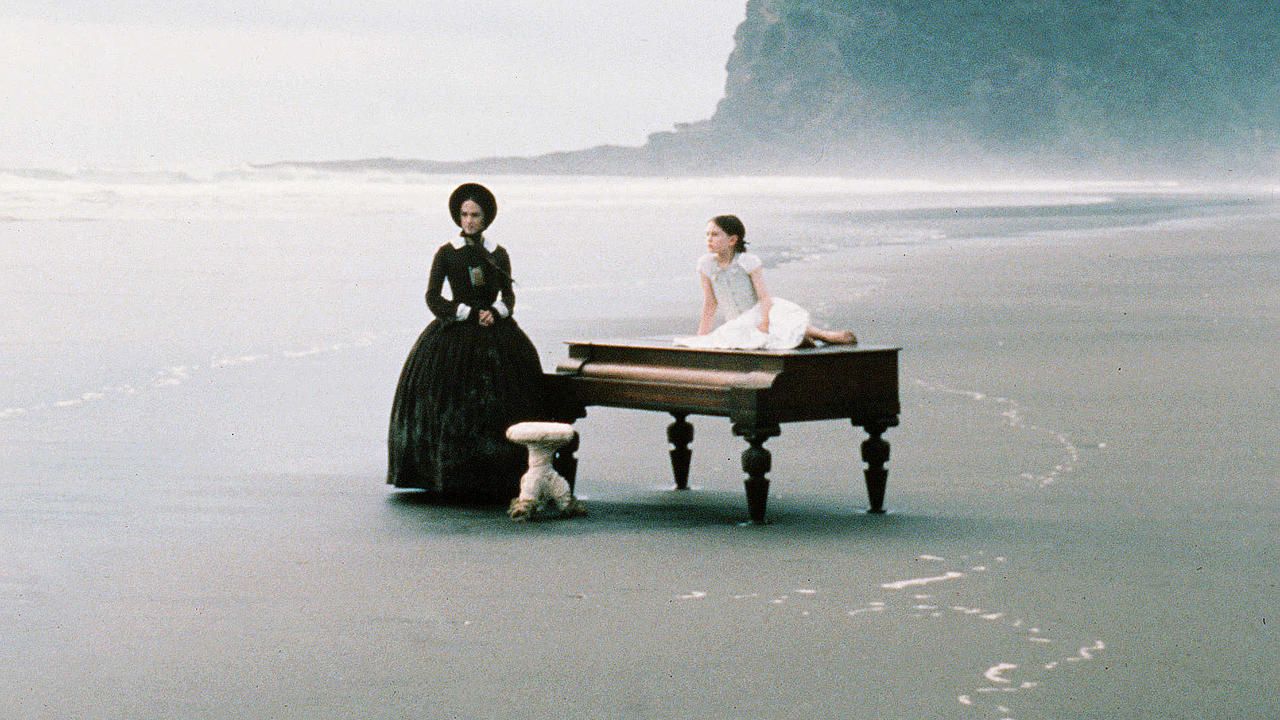#Best Film Scores of the ’90s Ranked

Table of Contents
“#Best Film Scores of the ’90s Ranked”
Before the world noticed Michael Giacchino and other modern film musicians, the 1990s saw the success of many composers. Even though some of them have stepped out of the lime light, their work is just as enjoyable to listen to now as it was the day their films were released. Here are the top ten film scores from the ’90s to brush up on your film score history.
Star Wars 9 Composer John Williams Breaks Own Oscars Record as Most Nominated Person Alive
10 Black Beauty (1994)
Black Beauty aims to give viewers a glimpse into the mind of a horse. It can be hard for many people to relate to a character with four legs and a tail. but the music helps audiences relate to the horse’s perspective in a way which otherwise would not be possible. It adds emotions that the naked eye can’t recognize on a horse’s face, from despair and heartbreak to determination and joy. Danny Elfman’s music anthropomorphizes the horse in ways which create a beautiful sense of empathy beyond that of any visual.
9 The Mask of Zorro (1998)
James Horner takes us to the early 1800s with songs almost as legendary as the mask itself. Set in Southern California, the score to The Mask of Zorro is driven by a Spanish influence, with beautiful guitars bringing romance to the story while rapid castanets bring seductive suspense to the action scenes. The fun score perfectly compliments this the upbeat action-adventure, with musical accompaniment that is as equally romantic and luscious as Antonio Banderas’ performance.
8 The Hunt for Red October (1990)
The Hunt for Red October relies on its music to immerse audiences in Jack Ryan’s story and build suspense. Perhaps this is seen best in the film’s opening scene where the score takes centerstage. An intimidating Russian choir sings the Soviet National Anthem with a menacing power that accurately represents the fear flowing through the protagonists’ minds. This song, along with the subsequent score from Basil Poledouris (who has provided appropriately sweeping scores to several epic action films like RoboCop and Conan the Barbarian), sets the tone for the entire movie. Poledouris taps into the Soviet-themed work he did on Red Dawn and masters it in this tense classic.
7 Far and Away (1992)
This film about the Oklahoma Land Rush usually does not get a lot of attention. Like almost any John Williams score, audiences don’t need to watch the movie to enjoy the music. However, those who watch Far and Away will also impressed by the stunning cinematography and performances from then husband-and-wife Tom Cruise and Nicole Kidman. As the protagonists travel from Ireland to New York and eventually the Midwest, John Williams fantastically sets each scene, applying district themes to different settings and specific motifs to each character. Although the elements stand on their own, they come together to create a magnificent and inspiring soundtrack.
6 Edward Scissorhands (1990)
The premise and setting of Edward Scissorhands is so strange, that many struggle to initially immerse themselves in the movie. Thankfully, Danny Elfman’s score does a lot to help bridge the gap. The magical chimes and the sound of human voices harmonizing with violins creates an atmosphere where anything seems possible, bringing a magical sense of whimsy to Tim Burton’s equally fantastical film. The music makes the movie feel personal, even if Edward’s predicament (having scissors for hands) is something ridiculously unrelatable (though metaphorical).
5 The Matrix 1999
The Matrix takes place in a setting unlike any other movie, and therefore it requires a soundtrack just as unique. This film’s score is so distinctive it took two composers, Don Davis and Graeme Revell, to pull it off. More than any other score on this list, the music for The Matrix reflects the sounds of the decade it was written in. It contains unearthly, distorted sounds, heavy percussion and melodic layering, relying heavily on bass and synth to appropriately match the film’s heavy usage of technology and digital advancements.
Keanu Reeves Reportedly Donated 70% of his fee for the Matrix to Charity
4 The Piano (1993)
Despite the title of this movie, the score for The Piano contains a full, sweeping ensemble, although most of the players allow the piano a chance to truly shine. In The Piano’s score, Michael Nyman strips away many complex layers in favor of allowing a single, intricate melody to hauntingly compliment the images. The solitary piano envelops audiences in its minimalistic but incredibly emotional sound. In this score, the great Nyman shows that less can be more, even in the music world.
3 Forest Gump (1994)
Alan Silvestri’s score mirrors the soft-spoken nature and quiet strength of the protagonist in this film. Forest Gump, the movie’s namesake, is challenged with physical and mental disabilities. However, the movie highlights the man’s inner power and the impact he has on other people. The music often goes unnoticed in the background, but part of its strength is that it doesn’t call attention to itself; like the titular character, it seems to appear in all sorts of unexpected places. The score’s sweet melodies are full of little surprises and sentimental feelings that add a world of depth to the emotional value of the film.
2 Braveheart (1995)
James Horner transports us to Scotland, where Braveheart takes place, utilizing a variety of Celtic influences. The score of this film causes creates an intimate and personal a personal connection to the land, regardless of the viewer’s previous relationship with Scotland or feelings toward natural splendor in general. The soothing flutes and bagpipes wash over the ears of listeners like wind sweeping over Scottish planes. Braveheart’s soundtrack fosters feelings of inner peace, quite unlike other more bombastic or emotional scores from the decade.
1 Schindler’s List (1993)
John Williams is the master of summarizing a movie’s theme with just a few notes, and this score is no exception. For the score of Schindler’s List, John Williams captures the struggle, heartbreak, perseverance, and endearing beauty of the Jewish people during WWII. The movie’s main theme starts soft but builds throughout Steven Spielberg’s picture to a dramatic and tear-jerking climax. Listeners will put this soundtrack on repeat despite the sorrowful undertone that cuts to the core; it’s that good. The music of the movie matches the maturity and dignity of the people who lived through the real events and survived to tell their story.
Read Next
About The Author
If you liked the article, do not forget to share it with your friends. Follow us on Google News too, click on the star and choose us from your favorites.
For forums sites go to Forum.BuradaBiliyorum.Com
If you want to read more Like this articles, you can visit our Social Media category.
